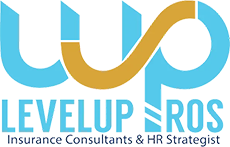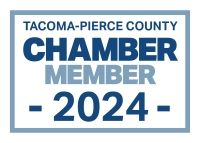The Gift of Clarity: How Clear Expectations are a Kindness to Employees

Introduction
In the fast-paced and dynamic world of modern work environments, employees face numerous challenges daily. From demanding deadlines to complex projects, navigating the professional landscape can be overwhelming. As employers and leaders, it is our responsibility to support and empower our employees to achieve their best potential. One simple yet profoundly impactful way to do this is by setting clear expectations. By providing employees with a transparent and well-defined roadmap, we can cultivate a workplace culture that fosters productivity, engagement, and overall well-being. In this blog, we will explore how clear expectations are, in essence, an act of kindness to our employees.
1. Reducing Anxiety and Stress
Uncertainty breeds anxiety and stress. When employees are unsure about their responsibilities, objectives, or how their performance will be evaluated, it can lead to a constant state of tension. No one likes the feeling of doubt when it comes to their performance. “Am I doing the right thing?” “Is my boss mad at me?” “Why does she want a meeting? Am I about to get fired?” are internal dialogues we can all relate to and stem from a lack of clarity on what we should be doing and whether or not we are meeting our milestones. Clear expectations act as a guiding light, illuminating the path ahead and reducing the fear of the unknown. Employees can focus on their tasks and goals with confidence, knowing precisely what is expected of them. This not only enhances productivity but also contributes to a healthier work-life balance, as employees can efficiently manage their time and energy.
2. Enhancing Performance and Productivity
When employees know what is expected of them, they can align their efforts accordingly. Clarity in expectations allows employees to prioritize their tasks and allocate resources effectively. As a result, they can work more efficiently, without wasting time on second-guessing or redundant activities. Furthermore, with a clear understanding of their goals, employees can better identify opportunities for improvement and growth. This leads to higher performance levels and increased productivity, benefiting both the individual and the organization as a whole.
3. Encouraging Accountability and Autonomy
In a workplace with vague expectations, employees may struggle to take ownership of their work. They might feel less accountable for their actions, as there is no clear framework against which their performance is evaluated. However, with transparent expectations, employees are more likely to embrace a sense of ownership and take responsibility for their tasks. Clear guidelines give them the autonomy to make informed decisions and find innovative solutions to challenges. This empowerment fosters a positive work culture, where individuals feel valued and trusted.
4. Improving Communication and Collaboration
Effective communication is the backbone of any successful organization. Clear expectations facilitate open dialogue between employees and their managers or team members. Employees can voice concerns, seek clarification, and offer suggestions more confidently when they understand their roles and responsibilities. Additionally, clear expectations promote collaboration by defining each team member’s contribution to collective goals. This creates a cohesive and supportive work environment, where everyone understands the value of their contributions.
5. Nurturing Professional Growth
Clear expectations provide a roadmap for professional development. Employees can better comprehend the skills and competencies required to meet their goals and progress in their careers. Moreover, as managers set clear performance expectations, they can offer targeted feedback and coaching, guiding employees toward improvement. This not only nurtures individual growth but also demonstrates the organization’s commitment to supporting its workforce.
So with all the benefits that come from clearly set expectations, why does communicating them make so many of us uncomfortable? In my work with numerous managers and business owners, it is obvious that most people view directness as unkind. No one wants to be “mean” and so we soften our communications in an effort to be the good guy, when in reality all it does is lead to confusion and misunderstandings. My mantra, both with working with clients and in operating my own business, is that Clarity is Kindness. It is cruel to let people flounder around not knowing if they are on the right track when it is so easy to give them the proper direction. But, here is the trick: It is much easier to set expectations before someone fails to meet them than to tell someone once they fall short. Now, I’m not saying that it’s too late and there is nothing to be done if you haven’t set them yet, but I am telling you that proactively setting shared expectations makes those “difficult” conversations much, much easier for all involved. Level Up has created an Expectation Mapping Template that you can use to shape your expectation setting conversation.
Conclusion
In conclusion, clear expectations are not merely directives; they represent a profound act of kindness towards employees. By providing clarity and guidance, employers and leaders create an environment where employees can thrive and excel. Reduced anxiety, enhanced productivity, greater accountability, improved communication, and nurtured professional growth are just a few of the many benefits that result from this simple yet powerful gesture. As we cultivate a culture of clear expectations, we foster a workplace where employees feel valued, engaged, and motivated to bring their best selves to work every day.





